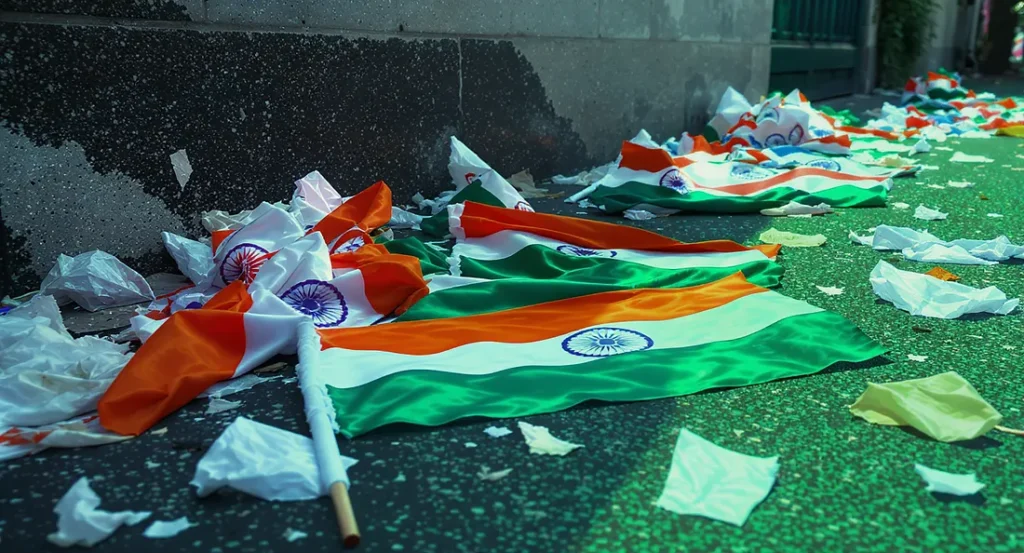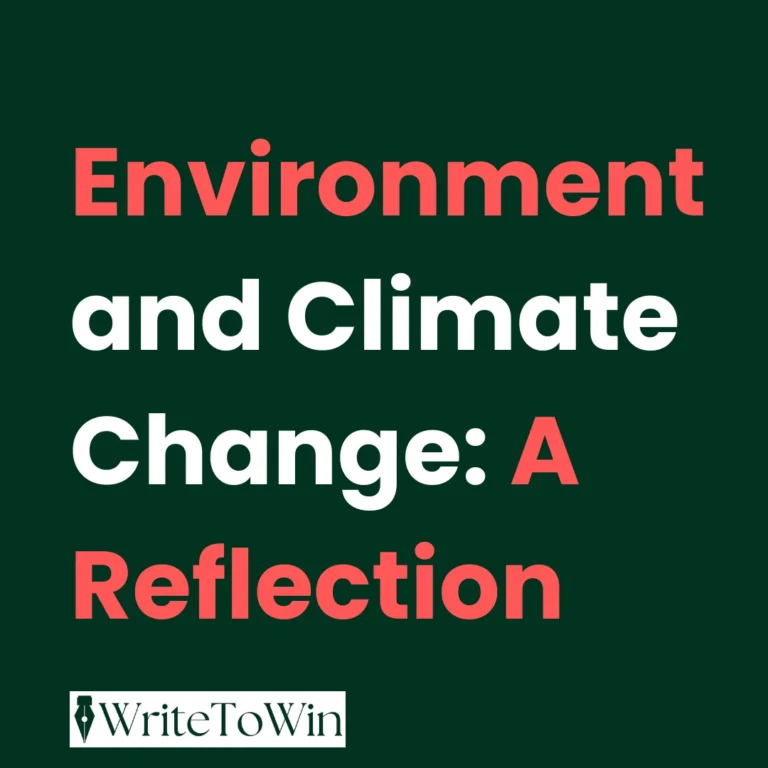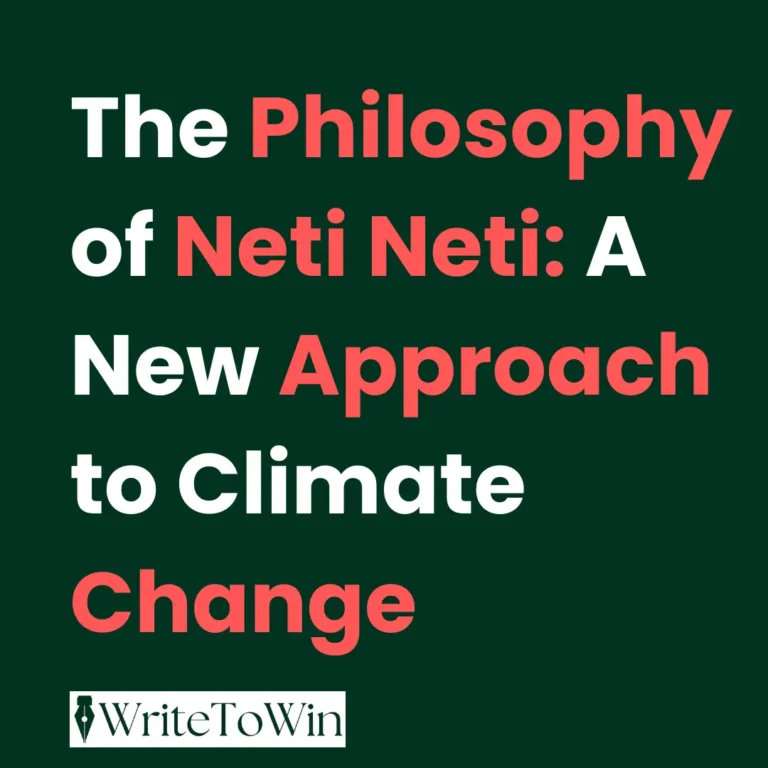India’s “Har Ghar Tiranga” campaign began with noble intentions: to unite the nation in patriotic celebration by encouraging every household to hoist the national flag on Independence Day.
While it certainly evokes pride and strengthens civic unity, the initiative has had an overlooked consequence — a deeply harmful impact on the environment.

1. Unprecedented Scale, Unprecedented Waste
- Over 200 million households are estimated to have hoisted flags as part of the campaign, resulting in the mass manufacture and distribution of tricolour flags across urban and rural India.
- In cities like Delhi alone, the Municipal Corporation distributed 2 million flags for offices and public places. Shopkeepers and manufacturers report record-breaking demand.
2. Material Matters: Plastic Pollution and Textile Waste
- Despite official advisories to prefer cloth flags for sustainability, countless flags are still manufactured using cheap single-use plastics — materials that do not degrade and add to India’s mounting plastic waste crisis.
- Even cloth flags, if poorly managed, contribute to textile waste, especially when manufactured with synthetic fibres like polyester and satin, which take decades to decompose.
- Because flags come in small sizes and are often considered “disposable” after the event, a huge volume ends up as litter, mixing with municipal waste and clogging landfills.
3. The Disposal Dilemma
- The Flag Code of India clearly mandates dignified disposal — burning or burial of damaged/torn flags in private. Yet, in reality, collection drives rarely occur and large numbers of flags end up on roads, mixed with garbage, or even used for unintended purposes like kitchen cloths or makeshift clothing.
- Waste management experts and civil society groups warn of “a big challenge”: the sheer inability to safely and respectfully collect millions of used flags after celebrations, leading to widespread disrespect and pollution.
4. Long-Term Environmental Harm
- Improper disposal of flags — especially those made from plastic — pollutes soil and water, endangers wildlife, and contributes to microplastics, which re-enter the food chain.
- Textile manufacturing for polyester flags has a huge carbon footprint. Mass flag production encourages fast, cheap manufacturing methods with little regard for environmental costs.
5. Missed Opportunity for Green Patriotism
While some local authorities have tried integrating eco-friendly practices (promoting cloth flags, plastic bans, awareness drives), actual implementation is patchy amid the pressure of mass participation.
The campaign could have set powerful precedents — for example, requiring only reusable natural fabric flags, compulsory flag collection drives, and education on respectful disposal — but these efforts have yet to match the scale of the problem.
6. Voices of Concern
Environmentalists, waste management experts, and residents’ associations have repeatedly flagged worries regarding flag litter, improper disposal, and lack of infrastructure to handle such massive yearly waste.
Many note the contradiction of celebrating India’s spirit while simultaneously harming its land, rivers, and biodiversity.
Action Needed for a Sustainable Celebration
- Ban all single-use plastic flags — strictly enforce existing legal provisions.
- Mandate the use of natural, biodegradable cloth flags and encourage their reuse year after year.
- Organise post-event flag collection and dignified disposal drives involving citizens, Resident Welfare Associations, and local governance.
- Launch educational campaigns about not just the flag’s symbolism but also its environmental footprint and respectful treatment.
- Integrate “Green Good Deeds” — promote a sense of responsibility toward both country and nature in every patriotic celebration.
Conclusion
The Har Ghar Tiranga campaign’s intent is to unite the nation, but its execution risks leaving a trail of environmental calamity.
If patriotism means love for our country, it must also mean caring for the land, water, and air that sustain us.
Without urgent reform, we risk honouring India’s independence only to mar her natural heritage — an irrevocable cost to future generations.

Saket Sambhav is the founder of WriteToWin, India’s premier environmental writing competition for school students. A legal professional and DBA candidate in sustainability, he launched WriteToWin to shift generational mindsets – empowering students to make conscious choices and protect the planet. He also mentors young eco-entrepreneurs, nurturing the next wave of climate leaders.







